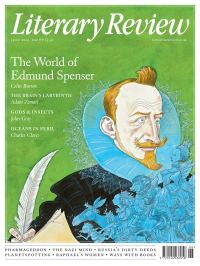Allan Massie
History in the Making
In 1814, Walter Scott published his first novel. It was something new: a novel dealing with a moment of history, and one in which fictional characters encountered real, historical ones and were caught up in an actual historical drama. Almost all Scott’s novels followed the pattern set by Waverley, and inspired imitators all over Europe. Many of the books influenced by Scott were doubtless very bad. Others were good; some of them were, in fact, great. Manzoni said he would never have written I Promessi Sposi but for Scott. In France Balzac, Hugo and Dumas were in his debt. So was his fervent admirer Theodor Fontane in Germany and very evidently Tolstoy in Russia. Dickens, Thackeray, Eliot and even Trollope were all inspired by Scott’s example to attempt at least one historical novel. Stevenson was his heir in their native Scotland. Then, with the emergence of the self-conscious literary novel and the arrival of Modernism, historical fiction fell out of fashion and, despite some notable novels, into critical disrepute. Now, thanks to the success of Hilary Mantel, the historical novel is enjoying a resurgence of popularity – even though some of the reviewers who praise Mantel express surprise that a historical novel can be so good.Obviously many historical novels aren’t written well: there are some truly dreadful ones – bodice-rippers and swashbuckling sagas. This should surprise nobody. Most novels in any genre are poor or at best indifferent. There are many dreary literary novels, and many pretentiously silly ones. Much crime fiction is trash, and so too is a great deal of science fiction. Moreover, in any genre there are novels worth reading once, but not for a second time. None of these reservations invalidates a particular genre.
There are essentially two kinds of novel: those that are self-enclosed and those that are open to the winds of the world. Historical events and public events play no part in the self-enclosed novel; but in the open novel they are actors, impinging on the characters. The 1745 Jacobite Rising

Sign Up to our newsletter
Receive free articles, highlights from the archive, news, details of prizes, and much more.@Lit_Review
Follow Literary Review on Twitter
Twitter Feed
The dropping of the atomic bomb on Hiroshima in August 1945 has long been regarded as a historical watershed – but did it mark the start of a new era or the culmination of longer-term trends?
Philip Snow examines the question.
Philip Snow - Death from the Clouds
Philip Snow: Death from the Clouds - Rain of Ruin: Tokyo, Hiroshima, and the Surrender of Japan by Richard Overy
literaryreview.co.uk
Coleridge was fifty-four lines into ‘Kubla Khan’ before a knock on the door disturbed him. He blamed his unfinished poem on ‘a person on business from Porlock’.
Who was this arch-interrupter? Joanna Kavenna goes looking for the person from Porlock.
Joanna Kavenna - Do Not Disturb
Joanna Kavenna: Do Not Disturb
literaryreview.co.uk
Russia’s recent efforts to destabilise the Baltic states have increased enthusiasm for the EU in these places. With Euroscepticism growing in countries like France and Germany, @owenmatth wonders whether Europe’s salvation will come from its periphery.
Owen Matthews - Sea of Troubles
Owen Matthews: Sea of Troubles - Baltic: The Future of Europe by Oliver Moody
literaryreview.co.uk